Dr. Nina Margies
- Name
- Dr. Nina Margies
- Status
- Lecturer
- nina.margies (at) sowi.hu-berlin.de
Nina Margies is Lecturer at the Chair of Urban and Regional Sociology. She is the author of the book „Emotions in Crisis” (Bristol University Press, 2024) and co-author of „Bodycams bei der Polizei Berlin und der Berliner Feuerwehr” (Law & Society Institute Berlin, 2024). She is co-founder of „The Urban Transcripts Journal”, an open access journal for urban research. Her research focuses on the role of emotions in the context of crises and social change as well as on urban organizations such as police and fire departments. She was Research Fellow at the Research Institute Casa de Velázquez (EHEHI) in Madrid and Visiting Scholar at the Universidad Complutense de Madrid (Department of Sociology) and at the Université d´Ottawa (Research Centre on the Future of Cities).
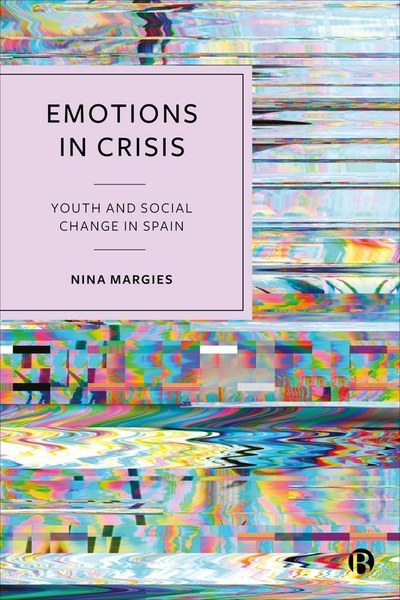
Emotions in Crisis (Bristol University Press, 2024)
We usually speak of crisis in numbers: decline in purchasing power, rise in unemployment rates or decreasing levels of life satisfaction. But what do people feel when their supposed securities for their futures crumble? The stories of the young adults after the 2008 economic crisis in Spain provide us with answers. This book shows how their loss of future prospects led to feelings of uncertainty, anxiety, frustration and resentment, and how they dealt with these emotions. Combining the sociology of emotions with Bourdieu's practice theory, Emotions in Crisis analyses the impact of structural changes in society on individual and collective emotions. It shows that adapting to such changes involves 'emotion work' and highlights the different forms this work can take.
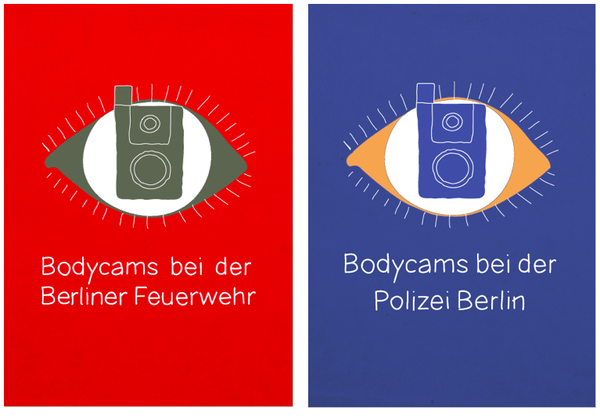
Bodycams bei der Polizei Berlin und der Berliner Feuerwehr (2024)
(Nina Margies, Roman Hensel, Silvia von Steinsdorff, Anna-Bettina Kaiser, Talja Blokland)
Commissioned by the Berlin Senate, we analysed whether bodycams offer greater protection for firefighters, police officers, and the public. Our research assessed the legal and regulatory framework governing bodycam use and explored the practical experiences gained by police and fire services since the beginning of the pilot phase. In total, we interviewed 130 firefighters and 150 police officers, accompanied them during their shifts, and considered the perspectives of the public through discussions with various Berlin-based initiatives and institutions. The study reveals why bodycams are not always activated, how their use can affect public trust, and what significance bodycam footage holds as evidence in court proceedings.
Further publications (selection)

Emotions and class: the social function of feelings in shaping inequality
(Nina Margies and Elgen Sauerborn, Emotions and Society, 2025)
The article places emotions at the centre of class analysis and shows how feelings are conditioned by social hierarchies and, in turn, contribute to their reproduction or transformation. It provides a concise overview of sociological research at the intersection of emotions, class and inequality, and traces two central strands of research: one that examines emotions arising from experiences of class and inequality, and another that investigates the ways emotions shape hierarchies, distinctions and social mobility.

Between Institutional and Domestic Logics: Symbolic Capital in Community Development in a Disadvantaged Neighbourhood in Berlin, Germany
(Talja Blokland, Hannah Schilling, Nina Margies, Sociology, 2025)
Neighborhood projects such as the "Neighborhood Mothers" program in Berlin are intended to foster social capital and thereby strengthen disadvantaged communities. Yet despite decades of work, many districts often remain marked by poverty. The article points to a possible reason: what matters is not only social capital but also symbolic capital such as esteem and respect. Where this collides with institutional requirements of distance and "objectivity," problems of trust arise.
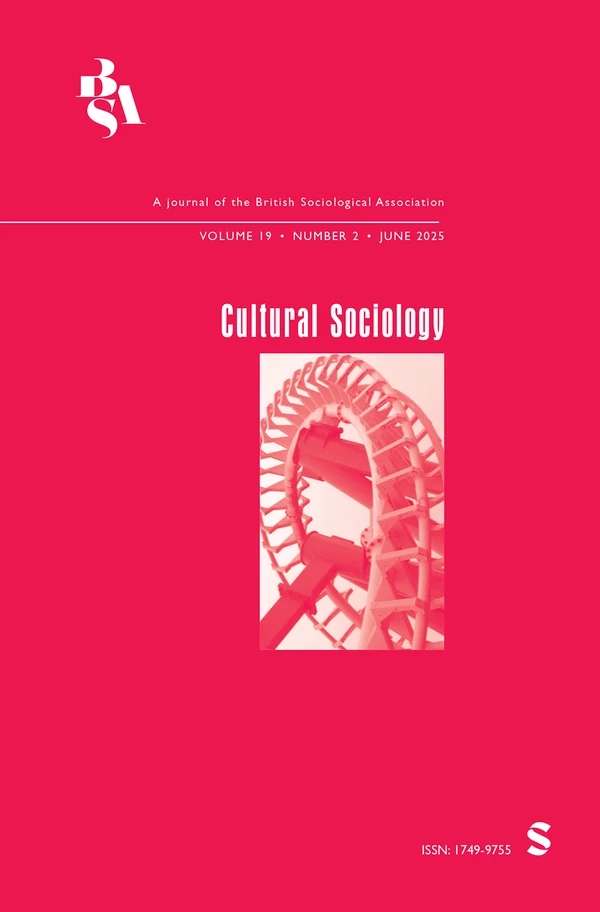
Making Sense of Change: Emotive-Cognitive Reframing of Young People in Post-crisis Spain
(Cultural Sociology, 2024)
This article examines how young people in post-crisis Spain interpret and deal with deep social transformations. It introduces the concept of emotive-cognitive reframing, describing how they adapt their emotions and beliefs to cope with shattered future prospects. Depending on whether their explanations are individualistic or systemic, their emotion work either focuses on personal suppression or fuels collective mobilization.
Nominated for the Cultural Sociology Sage Prize for Innovation and Excellence 2025.
Deep Transformations: Lived experiences and emotions in social change narratives
Till Hilmar, Iveta Kesane, Nina Margies, Monika Verbalyte (Cultural Sociology, 2024)
This issue explores how emotions shape political responses to major social change, using personal narratives and the concept of ‘deep transformations’ to analyze emotional and cultural impacts. Case studies from the post-socialist world and post-2008 Spain reveal new links between emotion, meaning, and change. We address three levels —remembering, adapting, and imagining change—c alling for a stronger integration of emotional and cultural sociology.
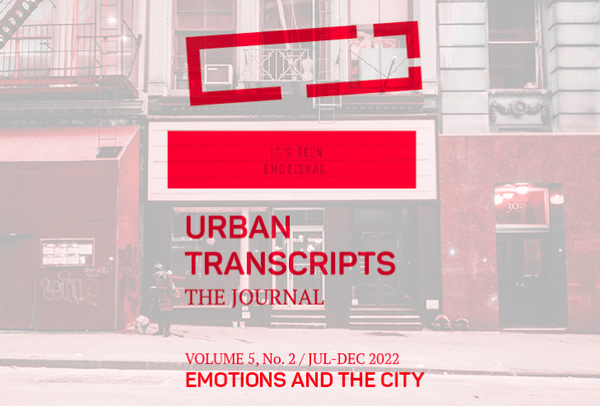
Emotions and the City
(The Urban Transcripts Journal, 2022)
Emotions play a role in the way we see, inhabit and build cities. Whenever we avoid walking through dark parks at night, design uncomfortable benches to scare homeless people away, cheer or suffer collectively at the city’s football stadium or when we get desperate about the impossibility to move within a city of constantly rising rents, emotions are part of the social and physical landscape and the way we consume and produce urban spaces and places.
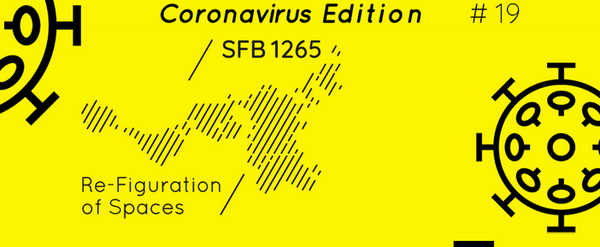
Digital care: How social support during the Covid-19 pandemic shifted to the digital and our worries became ´surplus value`
Daniela Krüger, Nina Margies, Robert Vief, Talja Blokland (Blog SFB 1261 Re-Figuration von Räumen, 2021)
We revisit results from our survey we conducted in the research project “Urban Life Amidst COVID-19”. We show that contact restrictions have shifted where and how social support with others is being exchanged. This is, as we argue, problematic as digital platforms were increasingly used to replace social support that would otherwise have been exchanged face-to-face and the problematic foundations of digital exchanges go unnoticed due to the illusio of privacy.
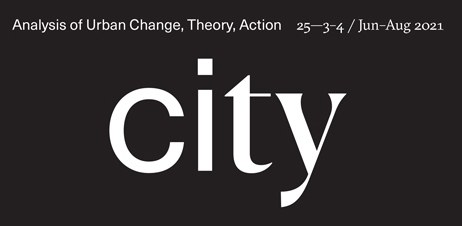
Thinking the City through Work: Blurring Boundaries of Production and Reproduction in the Age of Digital Capitalism
Katharina Knaus, Nina Margies, Hannah Schilling (Special Feature, City, 2021)
Urban development is closely linked to work practices, organizations, and sites, influencing how we experience and construct social spaces. Since the industrial revolution, work and home have been separated into public and private spheres. However, these boundaries are increasingly blurred, particularly due to digital technologies. This special feature examines how these shifts affect urban life, encouraging new ways to conceptualize work in urban studies.
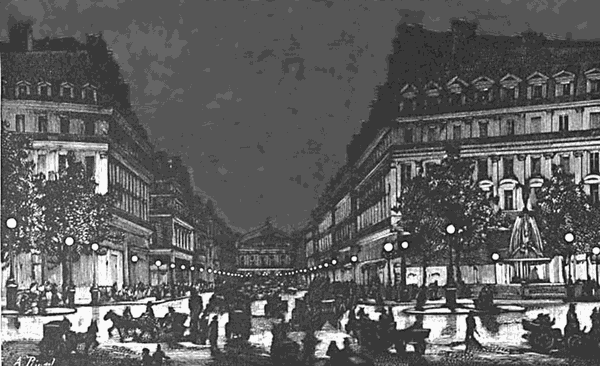
From the emergence of urban lighting to a new culture of consumption: Department stores and the public life of women
(The Urban Transcripts Journal, 2019)
From an urban history perspective, the essay sheds light on how urban and commercial lighting contributed to the development of consumer culture and the establishment of large department stores. The use of light served to present products and transform shopping into an imaginative experience. This changed the perception and use of the city, creating new professions and identities, especially for women (of the middle class).
Research Interests
-
Emotions and social change
-
Emotions and urban space
-
Urban organisations (fire brigades and police)
-
Bodycams at fire brigades and police
Academic Activities
- Editorial Board Member of the Journal Emotions and Society (since 2024)
- Member of the Advisory Board of the ESA Research Network RN11 – Sociology of Emotions (since 2024)
- Co-Chair of the research area « Law and Risk » am Integrative Research Institute Law & Society (since 2023)
- Board member of the ESA Research Network RN11 – Sociology of Emotions (2019 - 2024)
- Editorial Board Member of The Urban Transcripts Journal (seit 2019)
- Cofounder and Managing Editor at The Urban Transcripts Journal (2016 – 2019)
Teaching
- Qualitative Methods. Conducting interviews with Firefighters in Berlin
- Between Emotionality and Rationality: The Court as Emotion Space
- Urban Institutions as Emotional Spaces
- Emotions, Society and the Urban
- Urban Theory
- Emotions and the City
- Sociological Theories
- Forever Young? Precarity and Youth in Berlin
Awards
- Nominated for the Sage Prize for Innovation and Excellence of Cultural Sociology 2025 for the article "Making Sense of Change: Emotive-Cognitive Reframing of Young People in Post-crisis Spain" (Open Access).
- Open Access Award of the Humboldt-Universität zu Berlin in the category „Group/Project“ (2.500 €) for The Urban Transcripts Journal and its editors
